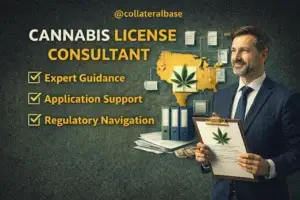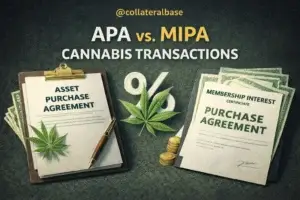We want to help you out on your business journey and explain to you when a corporate liability shield, like an LLC or corporation is needed or not.
As small business owners it can be extremely valuable to find guidance in what you should be doing for your business and when.
We are going over when you need to get a liability shield for your business.
There is no requirement that you create an LLC before you go into business, it can be a smart move and highly recommended sometimes but is not necessary to have your business running.
You can just start sending out invoices and creating value from your labor or sales of goods. Start helping people and charge appropriately.
Needing or not to create an LLC will depend on the type of business you own and its structure.
If you are wondering if you should have an LLC for your business and if the benefits will outweigh the cost and hassle of setting one up, this will definitely interest you:
[wpep-form id=”222417″]
What is an LLC
LLC stands for limited liability company. It’s a business structure that provides a business with limited liability. Although the structure is similar to corporations, the LLC is easier to establish and simpler to maintain.
The key aspect of LLCs is that it provides protection to the LLC owners by limiting the owner’s personal liability
Meaning that debts owed by the business, and other claims, like liens and lawsuits, are limited to the assets of the business itself, and in no case to the owner’s.
Therefore the personal assets of the business owners, under most circumstances, are protected and cannot be pursued.
Be careful, that does not mean owners are protected from negligence or illegal acts committed in the name of the LLC.
What would an LLC do for your business?
An LLC gives your business a legal identity on it own. It becomes a separate “person” in the eyes of the law and it can own money, have a bank account, make agreements, buy property, sue and be sued.
Not having an LLC means that you and your business aren’t legally separate, and everything you own is at risk if your business is facing liens lawsuits or others
Does My Business Need an LLC?
The first thing you should do to see if it is time to start an LLC is: examine your business. Ask yourself these questions:
- Do you have partners?
- Do you have high risk transactions?
- Do you sell food?
- How about anything where you have locations that could be sites of slips and falls?
If you need to form an LLC yet or not will mostly depend on your liability and taxes.

Many businesses are sole proprietors, so they cannot have all the disputes that partnerships can. Therefore, they are less likely to need an LLC until we look at what they are doing and how much they are making.
How about your blog that you have monetized with advertisements and merch, or online courses. Does that business need an LLC? Not until they are making tens of thousands of dollars a year.
In that case the transactions are all at a low price point. A few dollars for online ads and some sales of merchandise money. There is not much risk there. Someone is not going to have a slip and fall on your website. No one is going to get food poisoning from your online course. There is no liability benefit from splitting the cash flows away from the owner.
In this situation, it does not make sense to form an LLC until you get enough money each year to get hit on taxes so much that it makes more sense to become an s-corp so that you can work for yourself and get a paycheck from your own company and earn lower tax on the dividends. But that’s a tax question that can change over time.
What if you are the sole proprietor of a bar & restaurant? You need an LLC immediately. You have huge risks. Slip and falls, food poisoning, over serving a customer that gets in a car accident on the way home from your place. An LLC allows the owner to be a legally separate person than the cash flows.
How about an independent contractor that does home improvements? Then you want the liability shield because your job to redo a kitchen and bath could be 40 grand or more. You want that to be the company’s problem, not the owners. Large transactional liability is another reason to form the LLC. So if you are in enterprise sales, get an LLC.
Finally, partners complicate things far more. When you break up the ownership all sorts of things arise. How do partners exit the business; how do new people get into the business; what duties do the owners have to the business; and much more. Multiple owners of any business, as far as I’m concerned, always should have an LLC.
Key Points to consider when doubting to create or not an LLC
- You need an LLC when you have premises liability, brick and mortar stores.
- You need an LLC when you have transactional liability. Protect the big fat contract checks.
- You need an LLC when the tax man says you earn too much as a sole proprietor so get an accountant.
- You need an LLC when you have partners. Be smart, have an exit plan before you start with any partners.
How to Start an LLC
Now that you know when you need an LLC – let’s talk about how to form one. Make sure you you follow us for future content!
Filing with the State
If you are a small business, it would probably make more sense to start your LLC in your home state.
But you should know that there are other states to fill your LLC that may be more favorable due to beneficial tax laws and business infrastructures.
If you serve a local demographic you should file in that state, but for cyber or internet type of business the location has no real importance and you could research the state regulations that fit your business model best.
Each State has its own process when it comes to filing the articles of organization for an LLC.
Most of them offer to file online making the process easier, otherwise, you’ll have to fill out the articles of organization by hand and send it to your Secretary of State’s Office.
Determining If You Want To Be Manager or Member Managed
There are two forms of management for an LLC, it can be managed by the members or managed by a manager:
manager-managed LLC: Creates a manager role separated from the ownership. The manager has the authority to decide on the day to day operations. But the owners have authority for higher level decisions.
Member-managed LLC: the owner or one of the owners is the manager and handles operations accordingly.
Getting a Registered Agent
A Registered Agent is a person that could be a member of the LLC, or a third-party who acts on behalf of the LLC to collect legal notices from the State or other.
The registered agent needs a physical address in the State in which the company is registered.
If you do decide to incorporate an LLC in a different state from where you live, you will need to find a Registered Agent that resides in the same state where you incorporated your business.
Drafting an Operating Agreement
Next step is to draft your LLC Operating Agreement which is intended to be kept for internal record-keeping. This is where the ownership percentage of the company is outlined. Here are a few important things you should include in your LLC Operating Agreement:
- Names of all Members and all their signatures
- Members’ Percentage Interests and Capital Contributions
- Date of Annual Meetings
Once your LLC Operating Agreement is complete, each Member should have a copy.
Getting an FEIN Number
A FEIN is a Federal Tax Identification Number, also heard of as an Employer Identification Number (EIN), is issued to companies that do business in the United States. It iis a unique nine-digit ID number, like a security number but for companies.
- A FEIN is a way for government entities to identify and track businesses tax and financial activities.
- A FEIN is required to file tax returns, and to set up accounts to offer benefits to employees
Not every small business needs a FEIN, but the following do:
- Any business with employees.
- Any business that operates as a corporation or a partnership.
- Any business that pays employment, alcohol, tobacco or firearms tax returns.
You can apply for a FEIN
- By phone.
- By fax or mail:
- On the IRS website
Even if your business is not required to have a FEIN, you may decide to get one. There is no charge, and you never know when your business circumstances change.
Whether this is your first land use issue or most recent, our office has helped people and businesses alike.
Thomas Howard was on the ball and got things done. Easy to work with, communicates very well, and I would recommend him anytime.
[contact-form-7 id=”221523″ title=”Footer form”]





